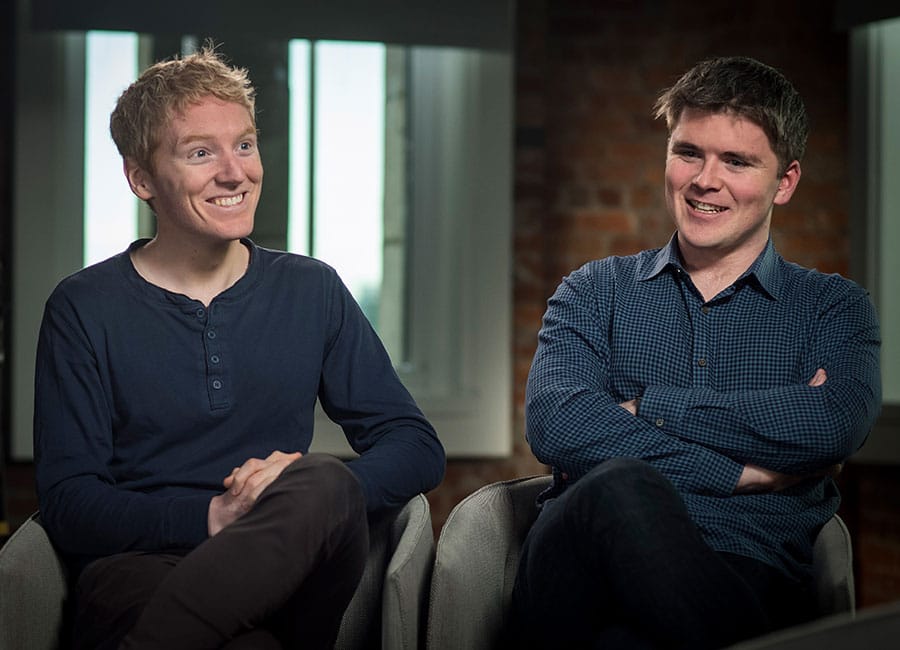Many local businesses in the Irish software sector are withstanding market turbulence and look set to thrive, writes Conor Mehigan
In 2011, influential investor and founder of Netscape, Marc Andreessen, wrote that ‘software is eating the world’. His prediction was that software companies would disrupt traditional industries, and since then we have had the emergence of companies like Netflix, Zoom and Airbnb that have transformed the way we live.
Software companies can scale at an incredible pace, unlike traditional businesses that need physical infrastructure or rely on the capacity of a team to sell more product. A great example of this is Zoom during the pandemic, when annual sales soared over 300% in a single year to $2.6bn as companies transitioned to remote working.
Ireland has had great success in the software sector in recent years, boasting several companies that have reached unicorn status, including Fenergo, eShopWorld, Intercom, Stripe, TransferMate, Workhuman, LetsGetChecked, Flipdish and Wayflyer.
The sector is characterised by sizeable trade sales too, such as ABC Fitness Solutions’ recent acquisition of Glofox in a deal reported to be worth over $200m upfront with a $100m earnout.
Glofox is a management software business focusing on the fitness sector, with an all-in-one system that enables fitness centres to manage memberships, check-ins, schedules, payments and more. The company was founded by Conor O’Loughlin, Anthony Kelly and Finn Hegarty in 2014.
In March 2022, J.P. Morgan’s takeover of Global Shares marked one of the largest Irish fintech exits in history, with the deal reportedly valued at $730m. Cork-based Global Shares is a market-leading provider of innovative software and services for employee equity share plan administration.
The business was originally founded by former Eir executive Maoiliosa O Culachain in 2005 before exiting in 2016. Richard Hayes was an early backer and chaired the company for several years, with CEO Tim Houstoun leading the firm.
Some of the drivers that have contributed to the success of Irish software companies include:
Presence of the large tech multinationals
Many of the leading tech companies such as Google, Facebook and Airbnb choose Ireland as the location for their EMEA headquarters. According to Tech Life Ireland, c.80,000 people are working in tech nationwide. Working at these multinationals provides people with the skills and expertise in the sector and a good base to set up a company.
One such example is Pointy, which developed tech tools for brick-and-mortar retailers and was sold to Google in 2020 for a reported $160m. Mark Cummins, Pointy co-founder, previously founded Plink, a visual search engine, which was sold to Google in 2010 and allowed Cummins to join the Google team. After about three years, Cummins left Google to focus on Pointy and the rest is history.
Deployment of Software
Location for software companies is less of a barrier for expansion as it can generally be deployed remotely, which allows Irish companies to expand to regions with little capital investment. Renatus is a private equity investor in Kappture, a point-of-sale software company, which specialises in POS systems for high-capacity live event venues and hospitality settings.
Kappture boasts a client list of marquee venues across Ireland and the UK, including Croke Park, Celtic Park, Cheltenham and Ascot. In recent months Kappture has deployed its systems in Sweden and opened an office in France, with ambitions to expand beyond that.

Universities
Irish universities and their associated research institutes have a strong track record of producing successful spin-out companies. There are 18 universities and institutes of technology in the Republic of Ireland that provide incubation centres such as Nova (UCD), Invent Centre (DCU), Trinity Research & Innovation (TCD), Gateway (UCC), Nexus Innovation Centre (UL) and QUBIS (Queens University Belfast).
According to Knowledge Transfer Ireland, 32 companies were spun out from Irish research institutes in 2021, slightly more than the average over the last five years and adding to the 139 that have been established since 2017. An overall spend of c.€670m was recorded on research at Irish universities last year, a 6% increase on 2020 and the highest spend since 2014.
This is a key contributor to the success of university spinouts such as Manna Drone Delivery, a NovaUCD spin-out founded by Bobby Healy in 2018. It has developed a business-to-customer drone service using aviation-grade drones that can fly up to 80km/h. It can deliver goods such as groceries, takeaways, and medicines, within a 3km radius, in under three minutes.
Manna has undertaken multiple funding rounds, with c.€30m raised to date. Plans have recently been announced to expand into the US later this year, the wider European market in 2023 and hire an additional 50 employees to augment the existing 103. As well as having exposure to funding, university spin-outs can access to top-class facilities and talent, and the collaborative environment they come from enables them to scale quickly.
Government Agencies
Government agencies such as Enterprise Ireland, IDA and ISIF have created a supportive environment for Irish software companies to thrive. When Enterprise Ireland’s predecessor, Córas Tráchtála, first opened an office in Dusseldorf in 1962, exports from Ireland to Germany amounted to £5m.
Sixty years later and it is estimated that indigenous Irish companies will export goods and services valued at c.€1.4bn to Germany this year, with software companies such as Flipdish and Cubic Telecom capitalising on the market opportunity.
People
In business and sport, Ireland has generally punched above its weight on the global stage and software is no exception due to the ingenuity and determination of Irish entrepreneurs. In 2003, Jimmy Martin was head of automation for Analog Devices and Austin Ryan was a software engineer for Ericsson. The pair met playing hurling and soon discovered they had more in common than GAA.
They focused on developing RFID and tracking software that enables access to data on the move with on-vehicle technology. This was the starting point for AMCS, and given the niche nature of the product, the company had to internationalise, initially through organic entry and a target acquisition strategy.
Today AMCS serves over 2,800 customers in 22 countries and has over 600 employees. Last January, AMCS acquired Utilibill in Australia, which provides a cloud-based billing platform to telecommunications, electricity, gas and water companies. That deal added c.100 people to the group payroll, while in May AMCS agreed to acquire Berlin enterprise Quentic, which has c.250 staff.
Quentic is one of the leading online software solution providers for EHSQ and ESG management, and to fund the deal AMCS raised new capital from private equity investor Clearlake Capital Group, alongside new equity investments from existing investors Insight Partners, Ireland Strategic Investment Fund, and Highland Europe.
Whilst public markets have been turbulent in recent months and valuations of pandemic era darling stocks such as Peloton and Zoom have been particularly impacted, many of these Irish software companies are transforming industries and serving solid underlying markets with good growth prospects which will thrive in years to come.
+ Conor Mehigan is Associate Director at Renatus Capital Partners











